
Old Boy Lachlan Stuart (2004-08) has returned to TGS for a special Year 12 Assembly, motivating our Year 12 students before their G150 Gift Run.
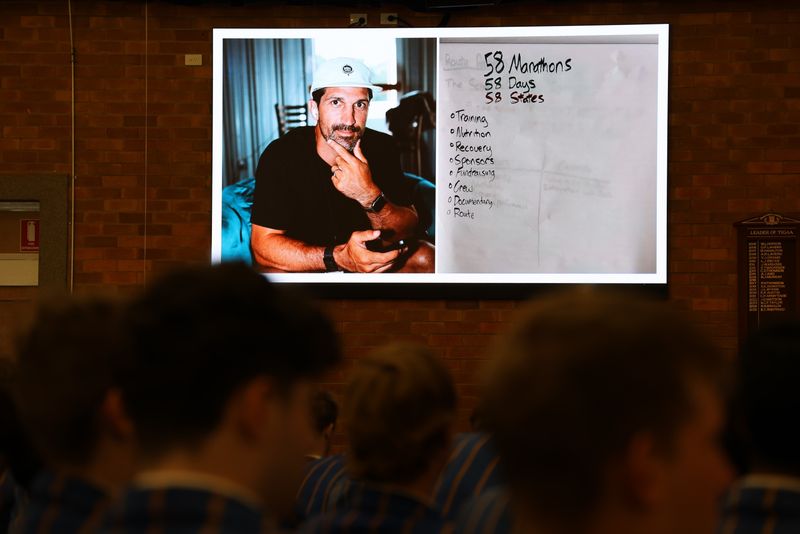
Mr Stuart will return to TGS again for the event held on Wednesday, 28 May to support the Year 12's significant fundraising G150 Gift Run event.
The boys are running 1500km in a relay format to honour a 1968 TGS Interact Club fundraising project that will help upgrade the original School gates on Herries Street, along with raising funds for the Nerve Connection Foundation.
Lachalan Stuart shot to international fame for his inspiring 58-2-58 project earlier this year. He ran a marathon in 58 different states of the USA and Australia in 58 days, raising funds and awareness for mental health. He is proud to be supporting this TGS marathon relay and shares his motivation here:
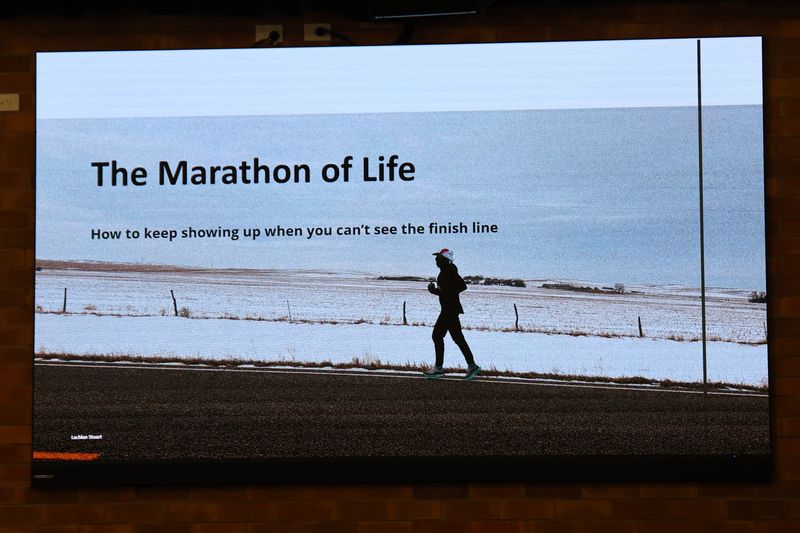
How did you recover after the 58-2-58 marathon? My coach had me running two hours a day for the first week after I finished and then tapering down from there. It was frustrating because I was ready to stop, but at the same time, it was good for my head to keep moving a little bit and reflect on everything I’d just done.
How did you deal with so much travel while running such huge distances every day? I had a great team. Obviously, waking up in a different place every day means you don’t have your usual comforts. We had to find water, figure out a route to run, etc., but that ended up becoming a routine in itself. When I hit a rough patch mentally or was injured, the team stepped up and made sure I kept moving so we could stay on track. It was definitely challenging, especially looking outside when it’s snowing and minus 20 degrees, the last thing you want to do is run. But we got it done.
How did you stay motivated through fatigue, injury and other challenges? The goal meant everything. I had personal reasons - just wanting to see what I was truly capable of. I’ve always pushed myself in sport and when I tied that to a bigger purpose - raising awareness for mental health - it gave me another level of drive. When I was struggling, I’d think about the people watching my story, the messages I was getting. I couldn’t quit knowing that others were looking to me for inspiration. That helped me keep going, especially when things got really tough.
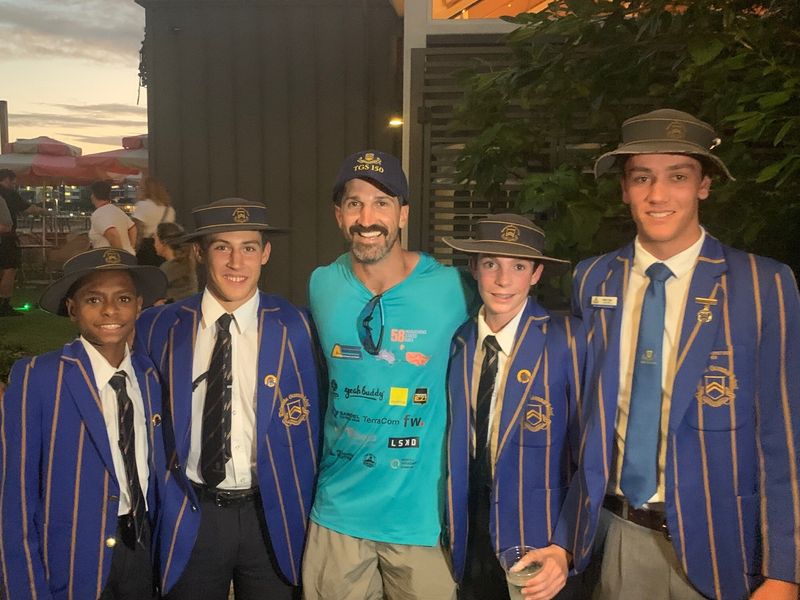
What was the highlight of the journey? Seeing my wife when I crossed the finish line, that was a breath of fresh air after nearly three months living with my mates. But honestly, even living with them was a highlight. Being on an adventure like that together, sharing those experiences, it's something most people will never get to do. No one can take that away, and just thinking about it makes me smile.
Do you realise how much of an inspiration you’ve been to others? I don’t think I fully do. One of the most humbling moments was receiving a message from Toowoomba Grammar School. I’m proud to be a TGS Old Boy, and to know I’ve had an impact on the staff and students, it meant the world. Back when I was at School, I always wanted to be successful, but I didn’t know what that would look like. So, to have some small impact on the boys there now, that brought tears to my eyes. Seeing some of the current students and Mr Kefford at the finish line cheering me on, that was one of the most special moments. People influence your life long before you realise it. Some of my TGS teachers, Mr John Anderson, Mr Mark Oliphant, Mr Lance Treloar and Mr Matthew Harrison in particular helped shape who I am. Even when I was in trouble. I didn’t get it at the time, but now I’m very grateful for their guidance. Mr Oliphant always wanted me to run cross country and I was so rebellious, I used to say “never!” Definitely a few regrets there. But you live and learn.

What was your favourite place during the run? That’s tough, there were so many beautiful spots. But Greenville, South Carolina stands out. After 32 straight days of sub-zero temps and snow, Greenville was the first day with warmer weather. It was such a welcoming town with a waterfall right in the middle, it felt like an oasis. I think about that place a lot.
What were you thinking about while running? Most of the time I ran without music, so there was a lot of thinking. For me, it became about life. Running gave me space to be who I really wanted to be and to reflect on what success and being a good person looks like to me now - as a husband, a friend. Before, I was always chasing business goals. But this made me stop and really take in the people we were meeting, the places we were seeing and just be present. Some days, I’d be hard on myself mentally, because there was so much time alone with my thoughts. But I wanted that. I wanted to understand myself better.
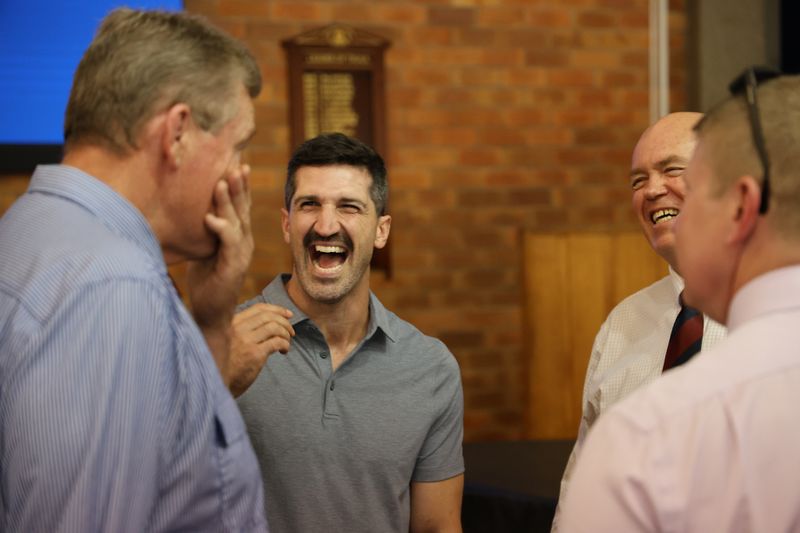
Do you feel like that process helped? Absolutely. I used to put so much pressure on myself to be someone or have certain things. Now I realise the most important things are my family and friends. This experience made me want to spend more time investing in those relationships. I now understand that career and money isn’t what life is all about, whereas before, that was all I thought about. So that was a huge shift.
Did you meet anyone along the way who inspired you? Without a doubt - hundreds of people. Every town we passed through, someone would run with me. It was never about how far they went, it was the effort. I got to hear so many stories about what people had overcome or were still going through, and how my journey inspired them. Focusing on their stories and what they wanted to achieve helped me push through my own pain. It reminded me we should never compare ourselves to others. We’ll never measure up if we do. Just be proud of your own effort.
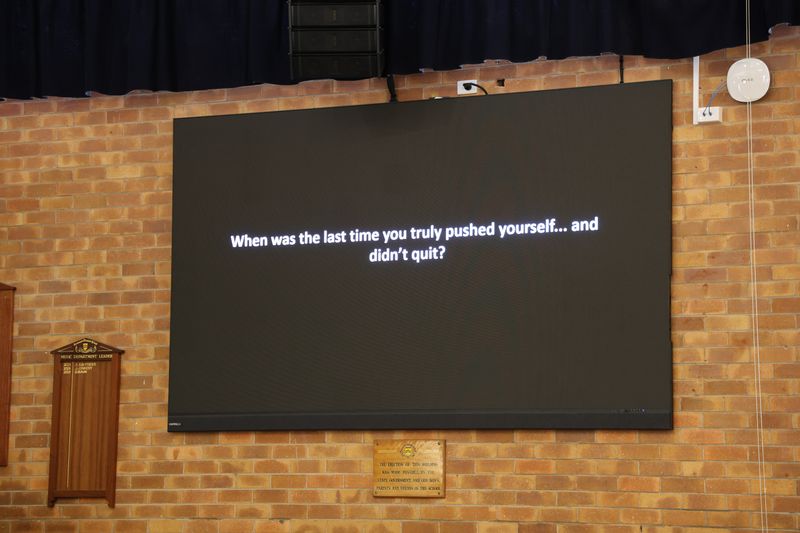
How did you develop that mindset? I’ve always been a decent athlete. After TGS, I played rugby overseas, but I constantly felt like I wasn’t enough. Eventually, I had a fall from grace, I struggled with addiction, mental health issues and suicidal thoughts. Getting through that was when I realised I needed to focus on my journey, not anyone else’s. I’m still not perfect at it, but I try. These days, if I can say “I gave my wife my best today” or “I gave my health my best,” then I can go to bed proud.
What was harder—overcoming addiction or completing this run? Definitely overcoming the addiction. 2013 was rock bottom; I had to look in the mirror and admit I didn’t like the person I saw. That was brutal. I’d hurt people and had to own up to that. But once I started taking responsibility, apologising, rebuilding, then slowly I started to gain confidence. It took about four years to get through that, and then I started The Man That Can Project. The run, as tough as it was, was a much easier place to be because I was proud of myself.
What is The Man That Can Project? It’s a men’s performance and coaching business. We help men figure out what success means to them and support them in becoming the best version of themselves. We run workshops, offer coaching and do a lot of public speaking. You can find out all about it on our website.
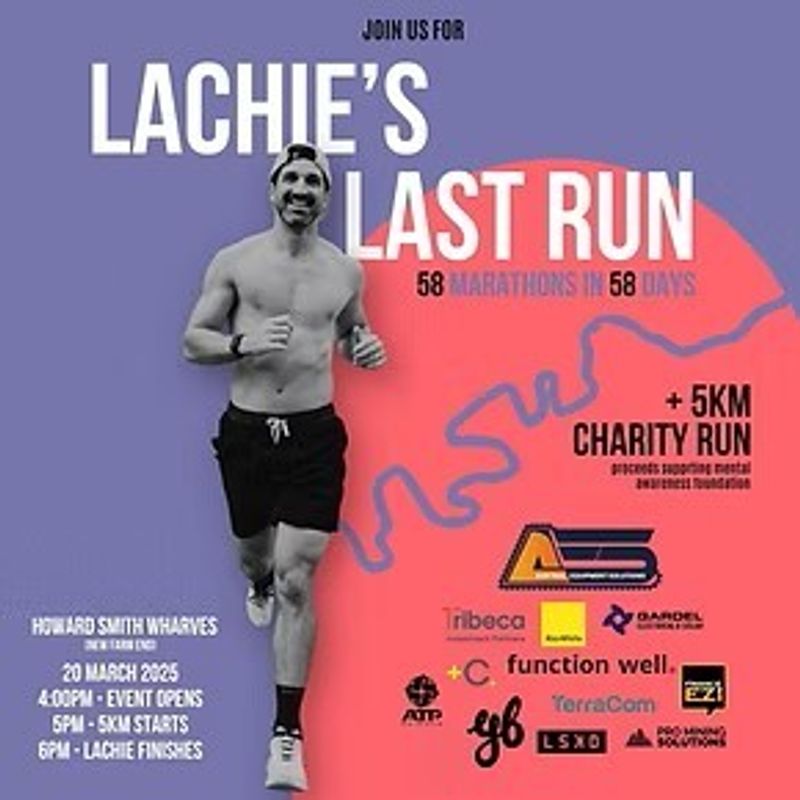
Why did you choose the Mental Health Foundation? I’d already started The Man That Can Project in 2017 when I met the founder of MHF, so I knew what they were all about. I also know where the money goes, and that’s important to me. The work they do has helped people I know personally. That’s why I’ve stayed aligned with them - they make a real impact.
What’s your advice to people who are struggling? It’s normal to go through a season where you don’t feel worthy or valuable. But find one thing you can do to start feeling worthy again. Minimise distractions and focus on that one thing. It’s all about small steps, then progress starts to happen.
What’s next? That’s the big question. First, I’ll spend time with my wife and continue the work I’m doing. There’s still so much more to be done in the mental health space to help people live better lives. As for running, the next big one will be in about twelve months. I’m aiming to beat the record for running across Australia which is currently 39 days.
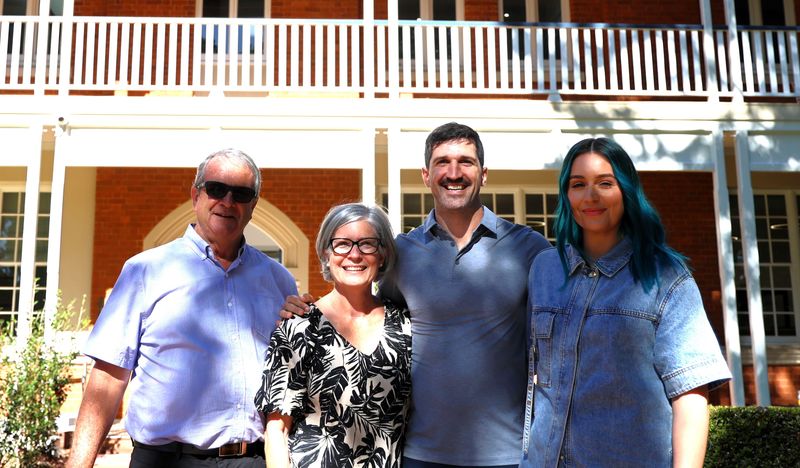
Latest Blog
Gaining Ground with a Growth Mindset
I have seen the posters. I have sat the assemblies. I have watched the ads telling us about growth mindsets and how to develop one, and I'm sure you have too. But what we don't do is apply it to ourselves to help benefit our lives, however, there is no reason to blame yourself. The growth mindset is a deep topic that has many layers to it and is extremely important to have today. While we might blame other things on our weaknesses, it all links back to one thing – our mindset. To benefit our…
Sleeping Away the Mental Health Crisis
Two in five. That’s how many young Australians between the ages of 16 and 24 have experienced a mental disorder in the last 12 months (ABS, 2022). Let that sink in. Think of your closest five mates. Odds are that two of them are suffering right now from a crippling mental illness. According to recent studies conducted by the Australian Bureau of Statistics, Australia is witnessing an unprecedented rise in mental health issues among its youth, leaving them vulnerable and struggling (Headspace,…
Time for a Wake Up Call
Did you know that one in five 12–17-year-olds average over 8 hours of screen time a day? That means that in a 14-hour day, 57% of their waking hours involve looking at a screen! This madness is contributing to a very significant problem all teenagers face - sleep deprivation. It is killing us. We are becoming walking zombies rather than happy, growing lads. However, we can end this treacherous technological tyranny by putting down our screens before bed. Stop and think for a second. How much…
Breaking the Stigma
Strangling you in chains. Smothering you in despair. Anxiety and depression can be mighty beasts to break free from. Unfortunately, the state of traditional masculinity is reinforcing these chains. Mental health is a major threat to the well-being of men. This cage constructs barriers and borders which limit their ability to thrive in the modern world. Traditional Masculinity refers to a set of societal expectations foregrounded through the centuries by gender roles, stereotypes and beliefs.…
The Power of Gratitude
“What do you say mate?” your mum nudges you as the waitress hands you your dinosaur nuggets. “Thank you.” You have always been told to use good manners, and to say thank you, but what does thank you actually mean? Is it just two meaningless words uttered with monotonous regularity, or is it a tool that can alleviate mental health issues generating happiness and a sense of wellbeing? Gratitude is the sunlight that lights up those dark days. The ability to be grateful is at the core of personal…
The Silent Epidemic: Unveiling the Consequences of Sleep Deprivation
“Sleep that soothes away all our worries. Sleep that puts each day to rest. Sleep that relieves the weary laborer and heals hurt minds.” William Shakespeare (Macbeth, 1606) Heart Disease, Cancer, and Alzheimer's. Three life-threatening diseases. Three diseases all linked to lack of sleep. According to Dr. Okorie from the children’s health division of Stanford University, “7 out of 10 high school students are falling short of… (sleep) on school nights.” The Bulk of American teens are not getting…
Tik Tok - From Fun to Fear
Social media platforms have ingrained themselves into our daily lives in a time when technology is constantly evolving and drawing millions of users with seductive features and never-ending streams of captivating content. Among these, TikTok has become a worldwide phenomenon, captivating users with its viral challenges and short-form films. Underneath the fun and inventiveness however, there is growing concern about the risks connected to TikTok and other social media platforms. TikTok's…
Active Procrastination – Unlocking the Gates of Time
“Procrastination is like a credit card: it’s a lot of fun until you get the bill.” - Christopher Parker – professional actor. Unfortunately, procrastination is a term that we are all familiar with as students; the vast majority of us have experienced it firsthand. It saps our time and results like a parasite, a burden on its host. However, despite it’s reputation, recent studies have shown that when harnessed correctly, procrastination can be a powerful tool to improve both academic efficiency…
It Takes a Village...
The Toowoomba Grammar School Boarding community plays a pivotal role in shaping the young minds of our boarders and instilling values whilst creating a sense of mateship that can last a lifetime. The nurturing and supportive network of staff not only ensure a safe and structured environment but also cultivates a sense of belonging and camaraderie among the boys. ‘The staff supply the fuel to the ship but ultimately it is the boys who steer it and decide upon its final destination’. Our TGS…